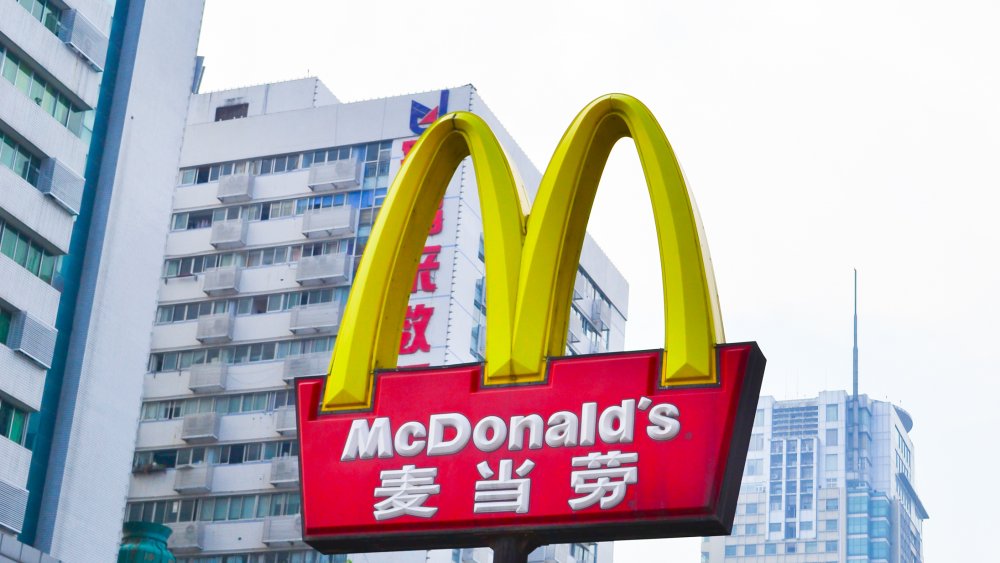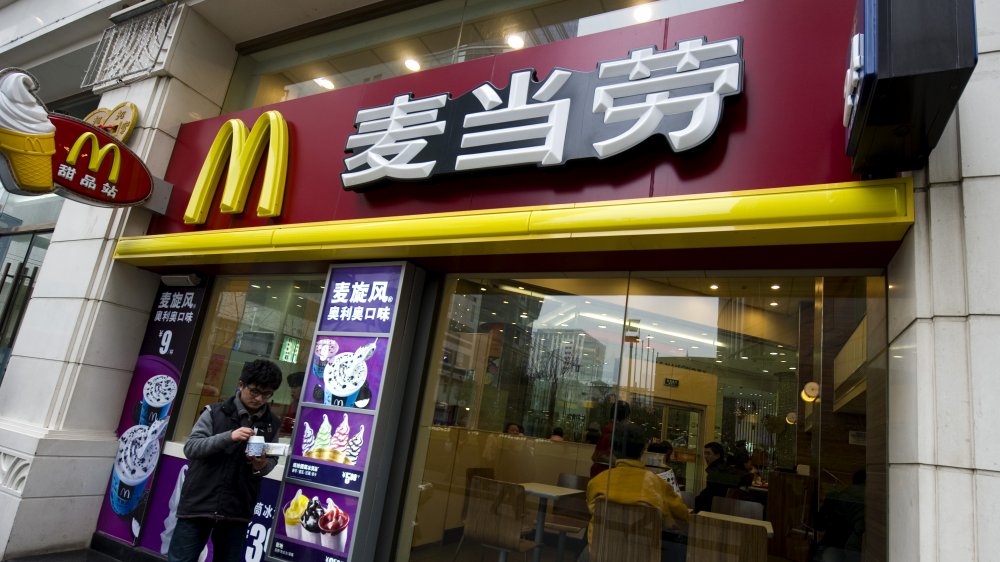McDonald's Has A Completely Different Name In China. Here's Why
McDonald's is a giant in the fast food business. The behemoth chain had 38,695 restaurants across the globe in 2019 and counting, per Statista. The hamburger joint has become a part of the American fabric and has also made its mark internationally, creating menus that reflect McDonald's roots, while infusing local culture into some of its offerings. From desserts that inspire internet envy — ranging from a Cadbury Crème Egg McFlurry in Australia, to an Oreo Cone with Purple Sweet Potato soft serve in Hong Kong, to sandwiches and sides that reflect the customer's preference when ordering up these quick meals and treats — McDonald's is quick to adapt to the locals and their likings (via Food Beast).
One country the Happy Meal maker has been trying to conquer is China. McDonald's opened the doors to its first restaurant in China in 1990, making it the 53rd country to become a part of the Golden Arches club (via Chinese Language Blog). The company chose Shezhen, described as a "Special Economic Zone" in Guangdong province, which borders Hong Kong, for its first 500-seat restaurant (via China Daily). But according to Eater, gaining a loyal fan base like the company has in the U.S. is a work in progress. McDonald's even goes by a different name in China and here's why.
Golden Arches is the moniker of choice in China
Per CNN Money, McDonald's name in China was "Maidanglao" which is a Chinese version of the word McDonald's. However, in 2017 the company changed it to "Jingongmen," which is loosely translated as Golden Arches. This change came the same year the company sold an 80 percent stake in its China and Hong Kong restaurants to the private equity firm the Carlyle Group LP (via Bloomberg). This move is thought to have coincided with the fast food chain's expansion plans which includes opening 2,000 new restaurants in the region by 2021, which will bring the total number to 4,500 (via CNN Money).
But a spokeswoman for McDonald's told Reuters that, "Our restaurant name will remain the same, the change is only at business license level." This response gives the impression that the change was made simply at the paperwork level, not the branding and marketing. This concept is common practice for big businesses hoping to gain market share in China. Coca-Cola goes by "Ke kou ke le" which means "tasty and fun" while Google is known as "Gu ge" which translates to "harvesting song."

